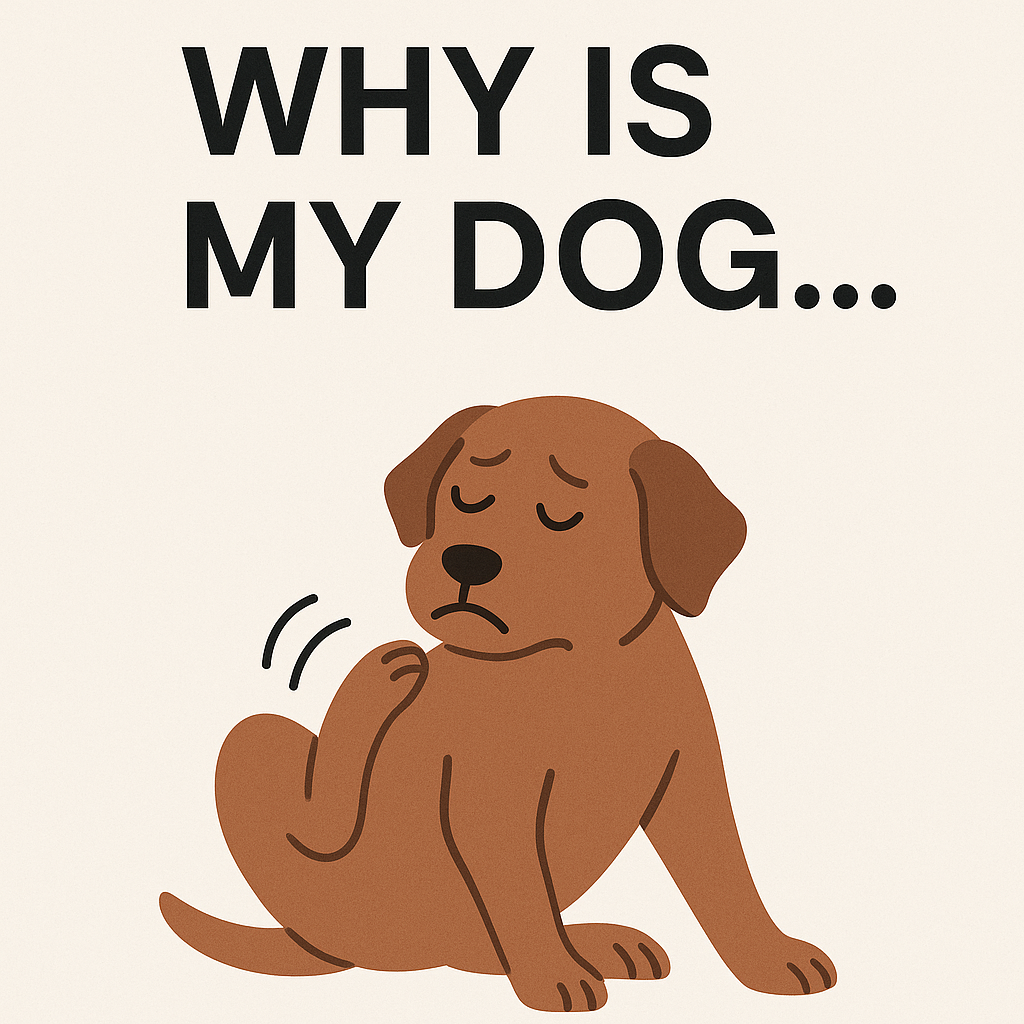Why is My Dog… Understanding Common Canine Concerns
As a pet owner, it’s only natural to be concerned when your furry friend exhibits unusual behavior or symptoms. Whether it’s itching incessantly, crying at night, or displaying other signs of distress, understanding the underlying causes is crucial for both your dog’s well-being and your peace of mind. In this comprehensive article, we will delve into some common issues that dog owners encounter, explore their potential causes, and provide guidance on how to address these concerns effectively.
Itching: Understanding the Causes
1. Allergies
One of the most common reasons dogs itch is due to allergies. Allergies in dogs can be triggered by various substances, including:
- Environmental Allergens: Pollens, mold, dust mites, and other environmental factors can cause allergic reactions in dogs. Seasonal allergies often manifest as itching and scratching, particularly during spring and fall.
- Food Allergies: Certain ingredients in your dog’s food, such as beef, chicken, dairy, or grains, can lead to food allergies. Symptoms may include itching, gastrointestinal upset, and skin infections.
- Flea Allergies: Flea bites can trigger intense itching, leading to flea allergy dermatitis. If your dog is allergic to flea saliva, even a single bite can cause severe itching and discomfort.
2. Skin Infections
Bacterial and fungal infections can lead to skin irritations and itching. Dogs with compromised immune systems or underlying health issues are more susceptible to these infections.
- Bacterial Infections: Often caused by staphylococcal bacteria, these infections can develop in areas of broken skin, leading to localized itching and inflammation.
- Fungal Infections: Yeast infections, particularly in warm and moist areas like the ears or between the toes, can also cause itching and discomfort.
3. Parasites
In addition to fleas, other parasites such as ticks and mites can cause significant itching and irritation. Conditions like mange, caused by mites, can lead to intense scratching, hair loss, and skin infections.
4. Dry Skin
Dry skin can be caused by environmental factors, such as low humidity or excessive bathing. This condition can lead to itching and irritation. Factors that contribute to dry skin include:
- Climate: Cold weather can exacerbate dry skin conditions.
- Diet: A lack of essential fatty acids in your dog’s diet may lead to dry, flaky skin.
5. Hormonal Imbalances
Hormonal issues, such as hypothyroidism or Cushing’s disease, can cause skin problems and itching. These conditions often require veterinary intervention for diagnosis and treatment.
6. Stress and Anxiety
Just like humans, dogs can experience stress and anxiety, which may manifest as itching or excessive grooming. Changes in environment, routine, or the introduction of new pets can trigger these responses.
What to Do About Itching
If your dog is itching persistently, it’s essential to consult a veterinarian for a proper diagnosis. Here are some general steps you can take to help manage the issue:
- Regular Grooming: Regular brushing can help remove allergens and debris from your dog’s coat.
- Medicated Shampoos: Your veterinarian may recommend special shampoos to soothe itchy skin or treat infections.
- Flea Prevention: Implement a flea control program to prevent infestations.
- Dietary Changes: Consider discussing food allergies with your vet and possibly switching to a hypoallergenic diet.
- Stress Management: Implement training and behavior modification techniques to help reduce your dog’s anxiety.
Crying at Night: Understanding the Causes
Hearing your dog cry at night can be distressing for both you and your pet. Understanding the reasons behind this behavior is crucial to finding a resolution.
1. Separation Anxiety
Dogs are social animals and may experience separation anxiety when left alone. This condition can manifest as crying, barking, or destructive behavior. Factors contributing to separation anxiety include:
- Change in Routine: A sudden change in your schedule or a recent move can trigger anxiety.
- Lack of Socialization: Dogs that have not been properly socialized may be more prone to separation anxiety.
2. Need for Attention
Sometimes, dogs cry at night simply to get your attention. If you’ve inadvertently reinforced this behavior by responding to their cries, they may learn that crying is an effective way to get what they want.
3. Discomfort or Pain
Pain or discomfort can cause your dog to cry at night. Conditions such as arthritis, gastrointestinal issues, or injuries may lead to nighttime distress. If your dog is unusually restless or crying, it’s essential to consult with your veterinarian.
4. Old Age
Older dogs may experience cognitive decline, similar to dementia in humans. This can lead to confusion and anxiety, resulting in nighttime crying or pacing.
5. Environmental Factors
Loud noises, changes in the environment, or even the presence of other animals can cause distress and lead to crying. For instance, thunderstorms, fireworks, or other loud sounds may trigger anxiety in sensitive dogs.
6. Potty Needs
Young puppies or older dogs may cry at night because they need to go outside to relieve themselves. Ensuring your dog’s bathroom needs are met before bedtime can help reduce nighttime disturbances.
What to Do About Crying at Night
Addressing nighttime crying requires understanding its underlying cause. Here are some strategies you can implement:
- Create a Comfortable Space: Ensure your dog has a comfortable bed and a designated sleeping area where they feel safe.
- Establish a Routine: Dogs thrive on routine. Establish a consistent bedtime routine that includes playtime, bathroom breaks, and quiet time.
- Gradual Desensitization: If your dog has separation anxiety, gradually increasing the time they spend alone can help them adjust.
- Provide Distractions: Give your dog toys or puzzles to keep them occupied during the night.
- Consult Your Veterinarian: If you suspect your dog is in pain or has a medical condition, seeking veterinary advice is crucial for diagnosis and treatment.
Conclusion
Understanding why your dog exhibits certain behaviors, such as itching or crying at night, is essential for their health and happiness. By recognizing the potential causes and implementing appropriate strategies, you can help alleviate their distress and improve their quality of life. Always consult with a veterinarian for a proper diagnosis and tailored treatment plan, as they can provide valuable insights into your dog’s specific needs. Remember, your dog’s well-being is paramount, and being proactive in addressing their concerns will lead to a more harmonious relationship between you and your furry friend.





